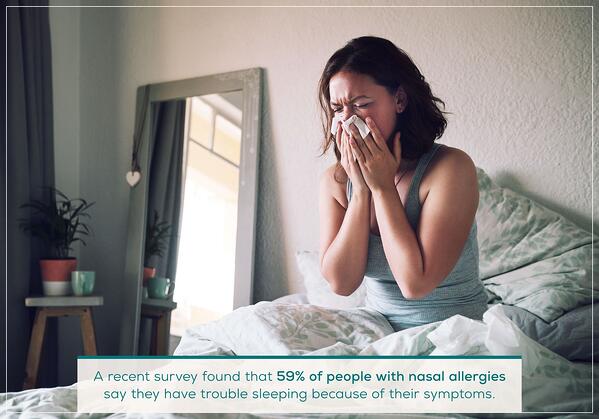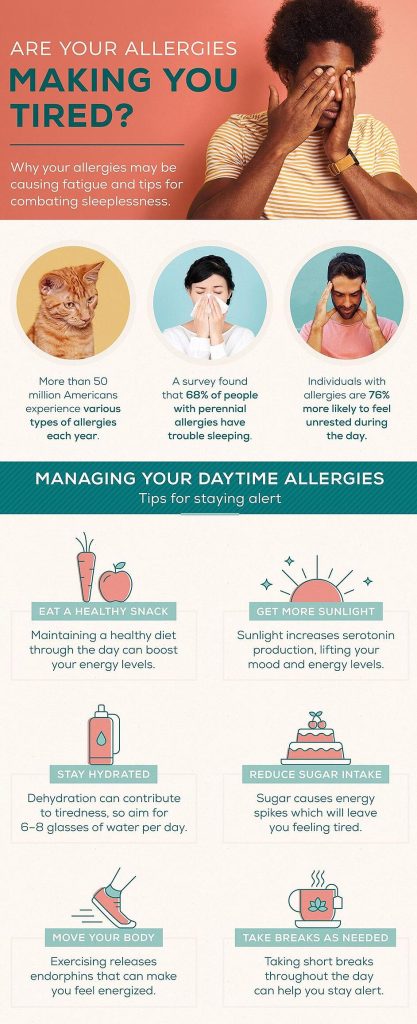
This is because exposure to allergens triggers an immune response that is meant to protect you from unknown allergens such as pollen and dust mites. This produces a chemical called histamine which is known to cause symptoms such as itchiness, swelling and fatigue. Not to mention all the other symptoms like coughing and sneezing that may make it difficult to get comfortable and fall asleep or stay asleep each night.
Your first instinct to combat allergy symptoms and fatigue may be to stay inside, however allergens can exist both indoors and outdoors, and it can be a challenge to limit your exposure to them.
To help prevent allergy symptoms so you can function normally during the day and sleep well at night, start by finding the source of your symptoms.
You can do this by taking an allergy test or by keeping an allergy log to track what you have been exposed to and what symptoms you may have. Once you’ve identified the culprit, avoid those allergens or at least try to limit your exposure to them if possible. If allergies are at home (like mold, dust or pet dander), try allergy-proofing the house.
Allergies can not only affect your quality of sleep but your quality of life as well. So, learning how to manage allergy fatigue is important — especially during allergy season. If you’re suffering from allergy fatigue, check out the infographic below on ways to stay alert during the day and reduce your allergy symptoms at night so that you can get a good night’s sleep and feel rested each day.

Whatever the cause of your poor sleep, be sure to look into solutions as soon as possible. Untreated sleep apnea can lead to an array of health issues, such as cardiovascular problems like arrhythmia or coronary artery disease, complications with medications like sedatives, narcotic analgesics, and general anesthesia, and even an effect on your emotional well-being, like growing depression and anxiety.
If you’re still unsure whether your conditions are serious enough for a sleep study, you can always take our quick sleep apnea quiz below and determine whether you show any signs of sleep apnea.
Untreated allergy-related sleep behaviors, however, can lead to a diagnosis of sleep apnea during pollen’s off-season, so it’s crucial to treat the problem in its earlier stages and avoid the hassle of long-term effects. If you do develop sleep apnea, then be sure to contact your nearest sleep clinic for a sleep study and analysis by a professional expert.
Luckily, our experts here at Alaska Sleep Clinic are more than capable of recognizing and handling any sleep diagnosis, from nasal inflammation to insomnia and OSA. So if you live in the Anchorage, Alaska area, then be sure to give us a call @ 907-357-6700.








